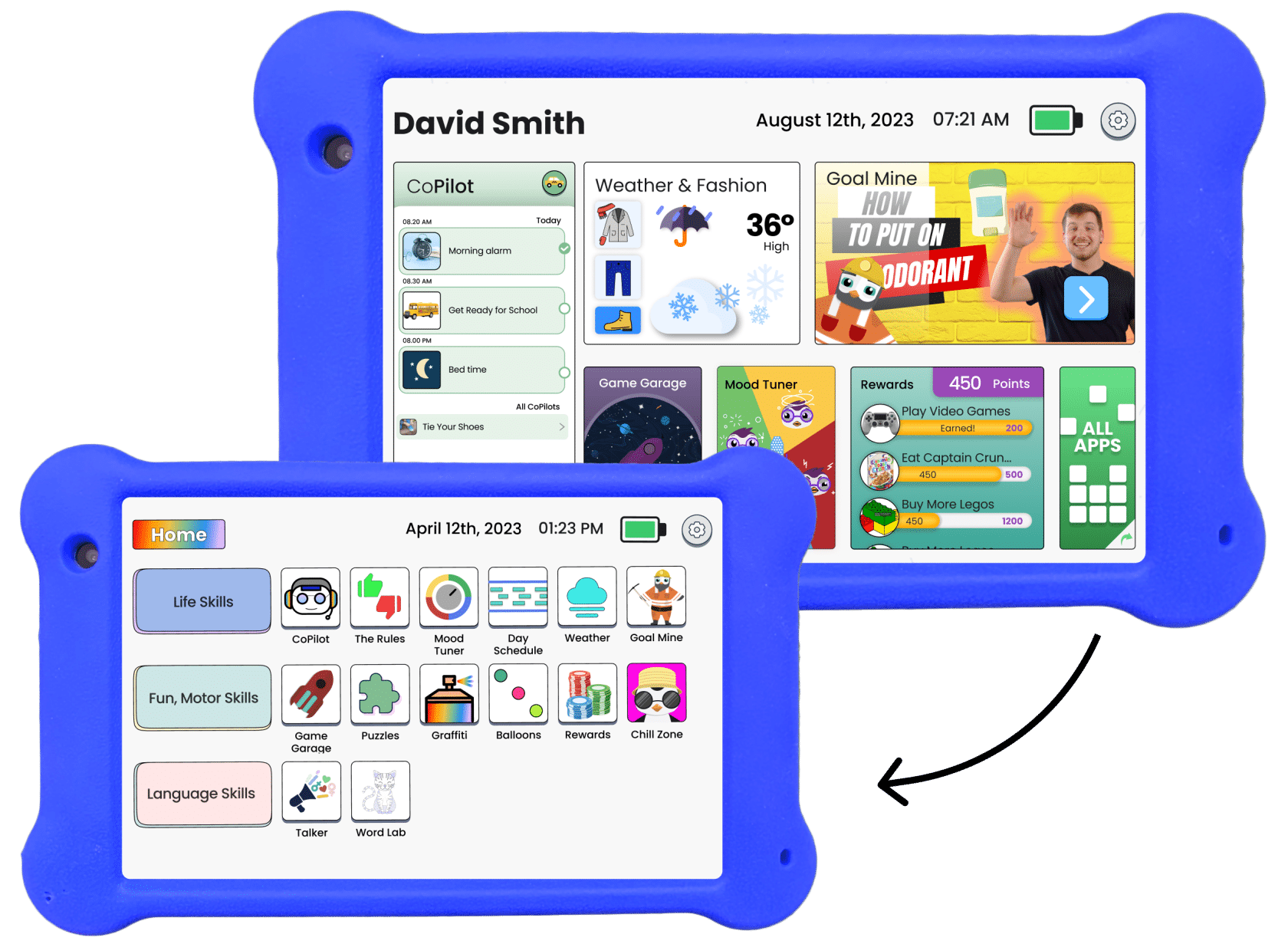Autonomous living is about developing skills, supporting independence, and empowering individuals with special needs to take control of their lives. Let’s explore how it works and see some examples:
- Skill Development: Teach self-care, functional skills, and decision-making to enhance independence and well-being.
- Decision-making: Empower individuals to make choices based on their preferences and abilities, fostering autonomy and self-confidence.
- Self-advocacy: Encourage individuals to express their needs and rights, developing self-awareness and active participation.
- Supported Independence: Provide a balance of support and freedom, allowing individuals to make decisions while receiving necessary assistance.
- Inclusive Communities: Create environments that value diversity, offer equal opportunities, and foster connections for meaningful participation.
Autonomous living promotes independence, self-determination, and inclusion. Products like Goally, a tablet offering fun apps and tools, provide valuable support in building life and language skills, aiding children on their journey to autonomy.
This post was originally published on May 12, 2023. It was updated on July 14, 2023.















